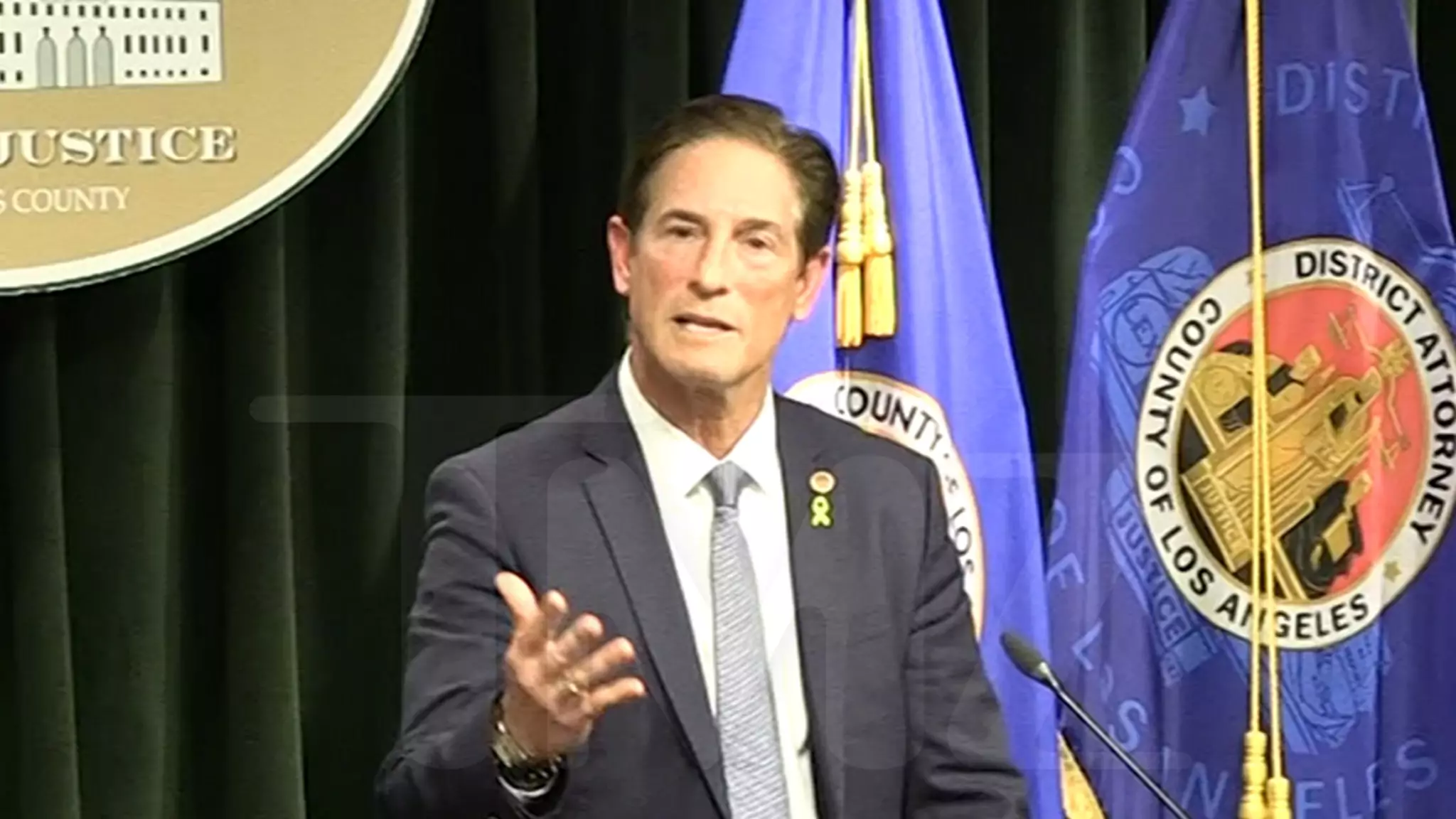The Menendez brothers, Erik and Lyle, gained notoriety after their shocking conviction for the murders of their parents, Jose and Kitty Menendez, in 1989. Their case has not only captivated the public but also sparked intense debate about justice, rehabilitation, and the complexities of familial abuse. As time has passed, the narrative surrounding the brothers has evolved, and discussions about their potential release have gained traction once again, especially with the recent changes in the Los Angeles County District Attorney’s office.
Nathan Hochman has taken office as the new District Attorney and has already signaled a potential departure from the strict stance of his predecessor, George Gascón, who had supported efforts toward resentencing. Hochman’s recent meeting with family members of the Menendez brothers suggests a willingness to hear multiple perspectives on this contentious case. While he described the meeting as “productive,” this vague terminology leaves much to speculation. It remains unclear whether Hochman aligns more closely with the families campaigning for the brothers’ freedom or whether he shares the voice of dissent represented by at least one family member.
This uncertainty is emblematic of the broader challenge in the criminal justice system: balancing the cries for compassion and understanding with the demands for justice from victims’ advocates. Hochman has been careful to remain neutral and has refrained from making any definitive statements regarding his position on the resentencing issue, indicating that he is meticulously reviewing the exhaustive court documents and prison records before he makes any commitments.
The sentiments surrounding the Menendez case are complex and multifaceted. Many family members view Erik and Lyle as victims of their circumstance—victims of a traumatic upbringing that they believe warrants compassion rather than perpetual punishment. In response, they have formed the Justice for Erik and Lyle Coalition, aiming to advocate for the brothers’ release on the grounds that they have rehabilitated during their years in prison. The Coalition’s efforts reveal a desperate hope for redemption, casting the siblings not only as murderers but as individuals who have grown and changed away from their past actions.
Nevertheless, the narrative presented by the family is juxtaposed against the significant emotional toll on those who suffered the ultimate loss: the parents. The question of whether someone desiring to see the Menendez brothers released can fully grasp the pain felt by the surviving relatives of Jose and Kitty is a topic that remains deeply divisive. For many, it raises the ethical implications of prioritizing familial dynamics over the rights and traumas of deceased parents’ loved ones.
As the resentencing hearing draws closer, the tension between public sentiment and the judicial process will only heighten. The Menendez brothers’ future remains clouded in uncertainty, as the political landscape in Los Angeles shifts, and as opinions from family members continue to intertwine with societal perspectives on justice and redemption. Whether Hochman will ultimately align with the Coalition’s ambitions or adhere to a more conservative approach remains to be seen, but one fact is undeniable: the Menendez case still resonates, provoking reflection on numerous social and legal issues that extend far beyond the lives of Erik and Lyle.

